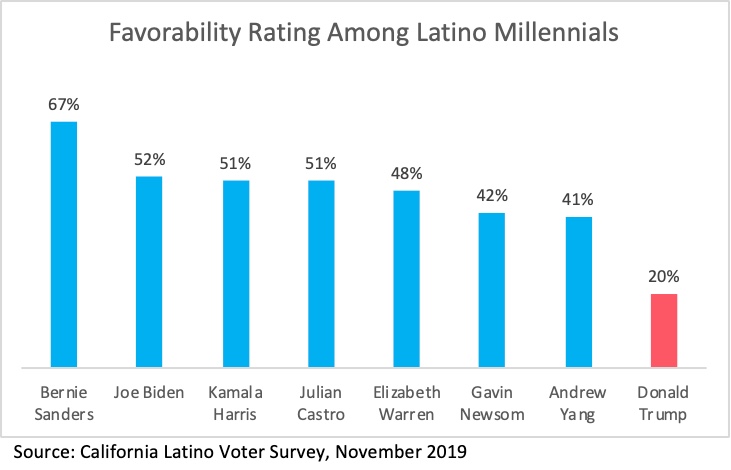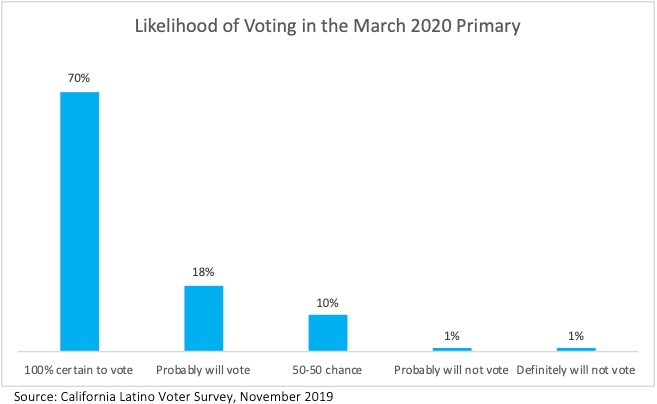Political corruption continues to be a major issue in New Mexico, making legislation to improve government accountability and transparency a major need as the state begins the 60- day legislative session. Most recently, Taxation and Revenue Secretary Demesia Padilla resigned from her job in the midst of an embezzlement and tax evasion investigation. However, scandals regarding elected and appointed officials in the state have been rampant across the state of late, including the arrests of former state senators, Public Regulations Commissioners, the state Corrections Department and several other state officers.
Most troubling, while the Secretary of State is the official state government ethics regulator, three individuals who have held this position in a row have been accused of wrong-doing while holding this important office. It is not surprising that the Center for Public Integrity and other independent report cards consistently rank New Mexico among the worst states in ethics and government accountability. For example, New Mexico is among the minority of states (7 in total) that lack an independent ethics commission. The only positive that may come from these high profile and embarrassing events is that they remind the public that we are in desperate need of ethics reform.
Attitudes Regarding A Culture of Corruption, Trust in Government, and Political Efficacy Among New Mexico Adults
A new survey conducted by the Robert Wood Johnson Foundation (RWJF) Center for Health Policy at the University of New Mexico provides some fresh data on how the New Mexico public views corruption and the amount of trust the public has in our government. One of the key inquiries we made in this section of the larger survey was whether the New Mexico community believes that we have a culture of corruption in the state due to a long history of political corruption and recent high profile scandals. More specifically, we asked respondents to let us know which of the two statements came closer to their view on the issue of corruption in the state:
“New Mexico has a culture of political corruption that cannot be improved by reform efforts so we just have to accept that some of this will be part of our political system.”
“Political corruption is not acceptable here in New Mexico and our political leaders should implement reforms such as an independent ethics commission to improve our political system.”
As reflected in the figure below, the vast majority (72%) of New Mexican adults believe that the state’s political leaders should implement reforms such as an independent ethics
commission. In fact, although self-defined liberals are more supportive of reforms, only 27% of conservatives believe that New Mexico has a culture of corruption that cannot be improved by reform efforts. This is a positive sign, as it provides direct evidence that despite having good reason to believe that corruption is endemic of our political system, the state’s population reject that there is a culture of corruption that cannot be reversed through legislative action.
Political science literature points to several factors associated with decreased civic engagement levels, including income, competitiveness of elections, and mobilization among others. However, an often-overlooked element influencing engagement is trust in government, an especially relevant dynamic for New Mexico these days. Research in the social sciences has suggested that those with lower levels of trust in local and state governments are less likely to be politically engaged, and at least one recent study finds that there is a relationship between convictions of corrupt elected officials and distrust in government.[1] Therefore, in addition to gauging the public’s views on the existence of a culture of corruption, we also measured trust in the state’s government.
The results from this item are illustrated in the figure below. A strong indicator that New Mexicans are paying close attention to the recent run of high profile corruption cases, as 1 in 5 New Mexicans reports that they “never” trust the state government to do what is right, and 58% only trust their government to do what is right “some of the time.” Conversely, an alarmingly low 3% of the statewide sample believes that the state government can “always” be trusted.
Similar to perceptions of corruption, trust in government does not vary significantly based on the political ideology of the public. However, race does influence trust in the state government, as Native Americans are more likely, at 28%, to never trust the state government to do what is right than their Hispanic and White counterparts, at 18% respectively.
Finally, the survey also measured the level of political agency among New Mexicans, or whether respondents perceived ability to influence local government decision-making. As the figure below illustrates, citizens of New Mexico do not have high levels of efficacy, as nearly 40% report that they have “no” influence on the decisions made by government, compared to another 38% who believe that they have only “a little” influence. Interestingly, those who are U.S.-born are more likely (40%) to feel they cannot influence local government decision-making at all than those born in other countries (28%). This is consistent with other polling numbers conducted in New Mexico, as 64% of New Mexicans believe state elected officials are more responsive to lobbyists than to voters (only 19% say they are more responsive to voters)[2].
A State in Need of Major Reform
Seemingly widespread corruption together with low levels of trust in government and political efficacy do not paint a pretty picture. This begs the question, what can be done to reverse these trends and begin building more public confidence in our elected officials? We believe that the answer lies in the creation of an independent ethics commission here in New Mexico. This is not a new concept, as all but 7 states (including New Mexico) across the nation already have an ethics commission to provide accountability for elected officials in their states. In fact, there are 7 states that have more than one commission![3]
We believe that our state desperately needs a well-funded, independent, and highly staffed commission to oversee ethics more than ever before. The data we have presented in this brief also reveals that this would be welcomed by the public, as over 70% of the respondents in this poll support the creation of an independent ethics commission. Our data is not unique on this point, as 61% of New Mexican voters indicated that they support establishing an ethics commission according to a recent Common Cause survey. In fact, 59% of New Mexicans according to that poll said they would support a candidate who strongly pushes for campaign finance and ethics reform.
State Senator Daniel Ivey-Soto has introduced a bill that is intended to address political corruption by creating a bi-partisan board that would review complaints or tips from the public and ensure that they are forwarded to the right agencies for investigation. The legislation would also empower this committee to track investigation and provide more transparency by placing the status of investigations on the Internet for the public to view.
Some may argue that the economic crises facing our state will require the state to postpone major ethics reform. After all, the establishment of a robust and well-resourced commission will cost money at a time when there is not enough to go around. However, we must also consider the cost of inaction. A recent report conducted by our colleagues in the Department of Political Science at UNM has found that political corruption has a marked impact on our states sluggish economy that continues to lag behind the rest of our neighboring states.[4] Ethics reform should therefore be considered among other policy solutions intended to increase economic development.
We believe that New Mexico is facing a critical juncture in our state’s political history. Substantial reforms are needed to decrease the amount of corruption, which will give our electorate a reason to be more engaged with the political system. Although the current political climate has left a lot to be desired, perhaps it can serve to motivate the political will needed to bring real reform to our political institutions that will begin the process of not only improving trust in government among the citizenry, but also improving the state’s economy.
About the Authors
Gabriel R. Sanchez is a Professor of Political Science, Executive Director of the Robert Wood Johnson Foundation Center for Health Policy at The University of New Mexico, and a Principal at Latino Decisions, a national survey firm that focuses on political behavior and policy attitudes. Melina Juárez is a Ph.D. candidate in political science and Robert Wood Johnson Foundation Health Policy Doctoral Fellow at UNM. Brooke Abrams is a Ph.D. candidate in political science and Robert Wood Johnson Foundation Health Policy Doctoral Fellow at UNM.
Survey Methodology
The New Landscapes of a Majority-Minority State study was conducted from September 3rd to September 27th, 2016, and relied on a total sample of 1,505 respondents, of which 753 interviews were conducted through a mixed-mode approach over the phone (603 landline and 150 cellphone) and 752 through the web to capture a wider segment of the New Mexican population that lacks a land-line telephone or prefer to engage in on-line surveys. The Pacific Market Research in Renton, Washington administered all the phone calls, and the interviewers were fully bilingual. Similarly, the survey administered through web allowed respondents to complete it in either English or Spanish, and had the exact same questions as the phone interviews. For the web sample, respondents were randomly drawn from the Latino Decision’s state panel of Latino adults, and were weighted to be representative of the population of New Mexico. All samples were combined and weighted to match the 2013 Current Population Survey universe estimate for the state of New Mexico with respect to age, place of birth, race/ethnicity, gender, and state. The survey consisted of about 96 questions, including several skip pattern questions. On average, the length of the survey was about 20 minutes. With a response rate of 17.7 percent for the telephone sample, the survey has an overall margin of error of +/- 2.5 percent.
A Publication of the RWJF Center for Health Policy
Preparation of this Research Brief was supported from a grant to the University of New Mexico from the Robert Wood Johnson Foundation. The views expressed in this report are those of the authors and do not necessarily represent those of the RWJF Center for Health Policy, the University of New Mexico, collaborating organizations, or funders. Editor-in-Chief, Gabriel R. Sanchez, Ph.D. Phone: 505-277-0130 Email [email protected] Location: 1909 Las Lomas Road, Albuquerque 87131 Copyright @ University of New Mexico – January, 2017
[1] See: Caillier, James. 2010. “Citizen Trust, Political Corruption, and Voting Behavior: Connecting the Dots,” Politics and Policy, 38(5): 1015-1035.
[2] January, 2015 Common Cause Public Opinion Survey
[3] http://www.ncsl.org/research/ethics/50-state-chart-state-ethics-commissions-jurisdic.aspx
[4] https://www.ced.org/pdf/NM_Report.pdf


